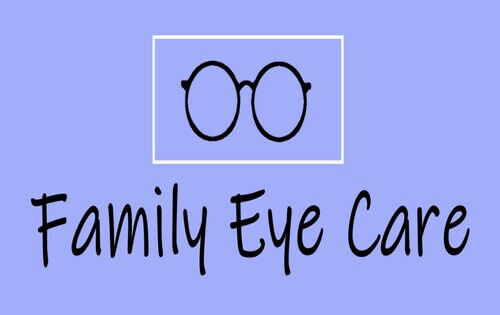Navigating the Labyrinth of Refractive Surgeries: Which Treatment Is Right for You?
In the world of refractive surgeries targeted at remedying vision, the selection of readily available procedures can typically feel like a labyrinth, each guaranteeing to supply quality and precision. As individuals contemplate starting the journey towards clearer vision, the sixty-four-thousand-dollar question occurs: which procedure is undoubtedly one of the most ideal selection? Browsing this intricate maze involves understanding the nuances of different options, thinking about personal elements that play a critical function in decision-making, and discerning the distinctions between popular vision correction techniques. In the middle of this complexity exists the assurance of tailored services that provide to specific requirements, making the quest for the appropriate refractive surgical procedure a detailed and extremely personalized procedure. The search for the perfect treatment requires a careful analysis of several facets, inevitably resulting in the option of a course that aligns flawlessly with one's distinct needs.
Comprehending Refractive Surgical Procedure Options

Variables to Take Into Consideration Prior To Selecting
Choosing the most suitable refractive surgical treatment requires a complete evaluation of different factors to guarantee optimum outcomes for each person. Prior to choosing a treatment, numerous essential factors to consider need to be taken into account.
Individuals with active lifestyles or certain occupational needs might benefit much more from specific treatments. People included in contact sporting activities might choose for procedures like PRK over LASIK due to the lowered threat of flap issues.
Comparing Popular Vision Correction Treatments
Thinking about the various factors that affect the choice of a refractive surgery, it is critical to compare popular vision improvement procedures to determine one of the most suitable alternative for private needs. 2 well-known procedures are LASIK (Laser-Assisted sitting Keratomileusis) and PRK (Photorefractive Keratectomy)
It offers fast recuperation and minimal discomfort, with a lot of patients experiencing improved vision almost right away. The recuperation duration is longer compared to LASIK, PRK is a much better choice for people with thin corneas or specific corneal irregularities.
When contrasting these treatments, variables like corneal thickness, eye health and wellness, and preferred healing time need to be carefully considered. Consulting with a knowledgeable eye doctor is essential to determine the most appropriate procedure based on an individual's particular requirements and eye health and wellness condition.
Custom-made Therapies for Private Requirements
Customizing refractive surgical procedures to fulfill special individual demands is important in achieving optimum aesthetic results and complete satisfaction rates. Custom-made therapies take right into account private factors such as prescription toughness, corneal density, pupil dimension, and way of life considerations to determine one of the most appropriate treatment for every client. Advanced technologies like wavefront-optimized or wavefront-guided treatments make it possible for specialists to deal with higher-order aberrations and boost visual quality past what traditional treatments can provide.

Locating the Right Specialist for You
When seeking a specialist for refractive surgery, it is critical to prioritize proficiency and experience in the area. The surgeon you select will play a considerable duty in the success of your procedure and the end result of your vision. To find the ideal surgeon for you, think about factors such as their certifications, field of expertise in refractive surgical treatments, and the variety of treatments they have done.
Start by investigating possible surgeons and their credentials. Try to find eye doctors who are board-certified and have particular training in refractive surgical procedure. Additionally, evaluation individual endorsements and before-and-after photos to assess the doctor's track record of successful results.
Throughout appointments, ask about the surgeon's experience with the particular procedure you are thinking about. Inquire regarding their difficulty prices, success prices, and just how they handle any potential risks connected with the surgery. A seasoned and experienced cosmetic surgeon will not only have the technical knowledge however likewise the capability to personalize the treatment to your individual needs, ensuring the very best possible outcomes for your vision improvement trip.
Final Thought
In verdict, when thinking about refractive surgical procedures, it is vital to understand the readily available options, variables to think about, and the distinctions between preferred procedures. Discovering a skilled specialist who can eye center andalusia assist you via the maze of selections is paramount in making sure a successful vision adjustment treatment.
In the realm of refractive surgical treatments intended at correcting vision, the variety of readily available procedures can commonly appear like a labyrinth, each guaranteeing to supply clarity and precision. One typical treatment is LASIK (Laser-Assisted in Situ Keratomileusis), where a laser improves the cornea to fix refractive mistakes such as astigmatism, farsightedness, and nearsightedness. Customized treatments take into account private variables such as prescription toughness, corneal thickness, pupil size, and lifestyle considerations to figure out the most ideal treatment for each person. To locate the right cosmetic surgeon for you, think about aspects such as their certifications, field of expertise in refractive surgical procedures, and the number of treatments they have actually done.
In verdict, when taking into consideration refractive surgical procedures, it is critical to recognize the readily available alternatives, variables to take into consideration, and the distinctions in between prominent procedures. - andalusia pediatrics